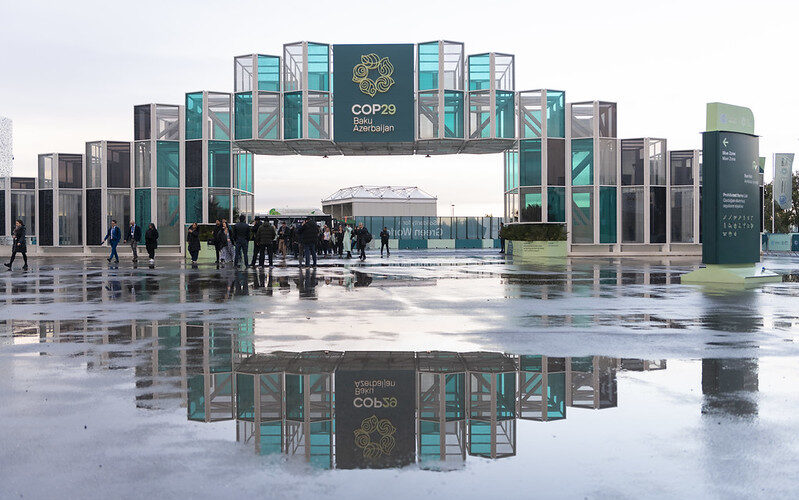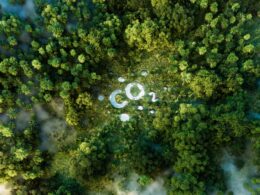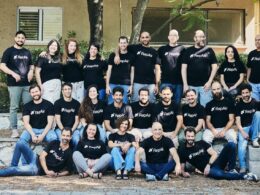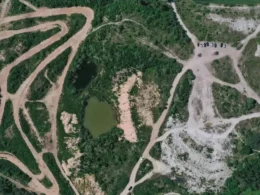The Azerbaijani government has come under fire during COP29 for allegedly using the global climate summit as a pretext to suppress environmental activists and political opponents, according to human rights organisations. This marks the third consecutive year that a host country of the COP climate conference has faced accusations of oppression and restrictions on the right to protest.
Global leaders have convened in Azerbaijan to discuss solutions to the climate crisis, but rights groups have raised alarm over a reported increase in the number of environmental prisoners of conscience in the country. Amnesty International and other organisations have called for a review of how host nations are selected, citing concerns over Azerbaijan’s treatment of civil society.
Natalia Nozadze from Amnesty International stated that since Azerbaijan was announced as the host for COP29, there has been a “dramatic increase in arrests” targeting individuals critical of the government. According to The Union “For Freedom of Political Prisoners in Azerbaijan,” the number of political prisoners, including journalists and environmental activists, has surpassed 300 for the first time in over two decades.
Among the cases highlighted is that of Gubad Ibadoglu, a London School of Economics professor specialising in Azerbaijan’s oil and gas sectors, who was arrested in 2023 on fraud charges described by Human Rights Watch as “dubious.” Ibadoglu, currently under house arrest, claims his life is in danger due to health issues. Anar Mammadli, a prominent activist, was arrested on smuggling charges two months after co-founding a group advocating for Azerbaijan to align with the Paris Agreement. Meanwhile, Nazim Beydemirli, an environmental advocate, received an eight-year prison sentence for extortion, despite his lawyer asserting the charges are baseless.
Environmental activists have criticised Azerbaijan’s plans to expand natural gas production over the next decade, arguing that it contradicts the country’s obligations under the Paris Agreement. President Ilham Aliyev, however, defended Azerbaijan’s reliance on oil and gas, describing them as a “gift of God” during his address at COP29.
Civil society organisations have expressed frustration at being sidelined during the summit. Bashir Suleymanli, a close associate of Mammadli, criticised the conference, saying it has failed to be the open and inclusive platform for climate action that it was intended to be. Similar criticisms were leveled at COP27 and COP28 hosts Egypt and the UAE, which were also accused of suppressing civil society groups.
Emin Huseynov, an Azerbaijani journalist and environmental campaigner, condemned the selection of countries with poor human rights records to host COP conferences, arguing that such decisions provide authoritarian leaders an opportunity to “whitewash” their image.
In response to the allegations, Azerbaijani officials have denied claims of political prisoners and asserted that the government welcomes participation from civil society. The UNFCCC, the UN body overseeing COP, stated that for the first time, this year’s Host Country Agreement includes provisions on human rights protections. However, Climate Action Network’s executive director, Tasneem Essop, said the UN has limited authority over a host nation’s human rights policies and emphasized the need for global leaders to address these issues.
The European Parliament has condemned Azerbaijan’s actions, deeming its human rights abuses incompatible with hosting COP29. Yet critics, including Huseynov, have accused the international community of largely ignoring the issue, noting the lack of public pressure from governments such as the UK, which previously criticised Egypt during COP27.
The controversy underscores the growing challenges faced by civil society in holding governments accountable on climate action. Activists stress that their role is vital, pointing to achievements such as the establishment of a loss and damage fund, which they attribute to decades of advocacy by civil society groups. As Essop put it, “Our presence really does hold their feet to the fire.”






















